#church minister
Text


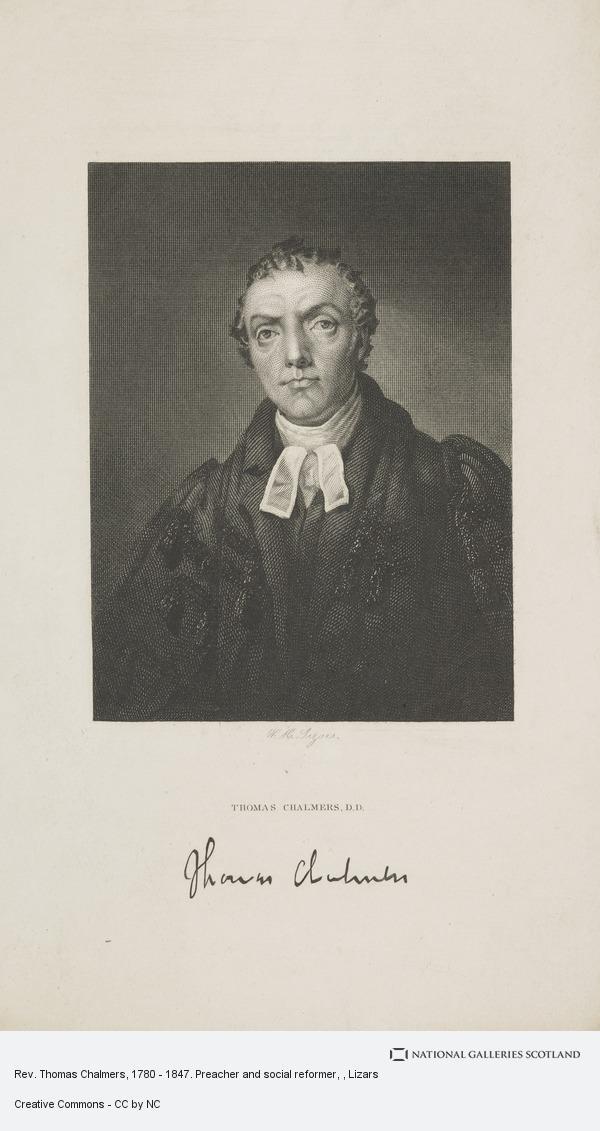
On 17th March 1780 Thomas Chalmers, was born at Anstruther, Fife.
Thomas was educated in local schools in Fife, at aged just 12, at the University of St. Andrews (he was the second youngest student, where he became a keen mathematician and scientist. He also wanted to be a preacher and when he became a Minister at Kilmeny in Fife, in 1803, he also gave lectures on Chemistry at St. Andrews.
As a preacher he made his name at the Tron Church from 1815, and at St. John’s Parish, Glasgow, from 1820. In 1828, Chalmers became Professor of Divinity at Edinburgh University, and Moderator of the General Assembly of the Church of Scotland in 1832. Within the Church, Chalmers was the leader of the Evangelical party, and as such he proposed the Veto Act which gave some power to the parishes to reject a minister proposed by the patron.
This stand against patronage contributed to the Disruption in 1843 when joined around one third of Church ministers in forming the Free Church of Scotland. He became the first Moderator of the General Assembly of the Free Church of Scotland and shortly afterwards resigned his Chair at Edinburgh University. He was the first Principal and Professor of Divinity of the Free Church’s New College.
On Sunday, the 30th, he had been writing at home and “ continued in his usual health and spirits”, before retiring to rest with the intention of rising at an early hour to finish this. The next morning he did not make his appearance, and he was discovered lying dead in bed.
Chalmers was interred in the Grange Cemetery on 4 June, the very first burial in that cemetery.
It’s hard to get a handle of Chalmers from such a short piece, so check out the link below, they say after death it is how you are remembered, Thomas Chalmers has several legacies, The town of Port Chalmers in New Zealand is named in his honour, a bust of him is in he Hall of Heroes at The National Wallace Monument and The Thomas Chalmers Centre in Kirkliston. His statue is at George Street, Edinburgh, art the junction with Castle Street
9 notes
·
View notes
Text
Edey Village, Christ Church, Barbados. Oliver Chesterfield Fields, 71, is a church minister.
https://youtu.be/-1f-S2yHjYo
youtube
His ‘gift’ was satisfied by rape and a hasty retreat when the husband came home. I have questions. What about you? Naked!!
Like. Share. Subscribe. Comment on YouTube.
0 notes
Text
I was spending the evening with a group and someone stole all my stuff, so I went to see who had security cameras pointing outside to find out who the thief was. The next day, the prime minister of Spain appeared and said he was sure who it had been and took a bunch of people and the offender to a church to make him confess by brute force.
689 notes
·
View notes
Text
if a teacher at a Catholic school is a poor role model of the moral life in a public way, they should be fired, simple as. if a teacher at a Catholic school cannot accurately describe and vocally affirm the teachings of the Catholic Church when asked, they should be fired, simple as. if a teacher at a Catholic school is known publically to be a non-practicing Catholic, they should be fired, simple as. Close schools if there aren't enough staff. I don't care. I'm sick of our Catholic schools disobeying the Bishop, the Church at large and pushing relativistic nonsense onto students as Catholicism.
#TAKE AWAY OUR PUBLIC FUNDING IT IS THE WORST THING TO HAVE HAPPENED TO OUR CATHOLIC SCHOOLS#we are public schools with crucifixes on the walls#the teachers are ministers of the faith and the Church has the right to select her ministers#literally it would be better to only have one Catholic school in the whole county that is upright and Orthodox than the entire school board#that we have now#if you want to teach at a Catholic school THAT badly be well catechized vocally support the Church and keep your disagreements and or#deviations private
232 notes
·
View notes
Text
Howard Stern: How many Jews can say they were baptized?
Billy Joel: All the Jews living in Spain during the rule of Ferdinand and Isabella.
#ZERO hesitation#context is billy is jewish but when he was 11 his mom started going to a church and had him baptized#but he quit going because the pastor (preacher? minister? idk) was antisemitic
31 notes
·
View notes
Photo
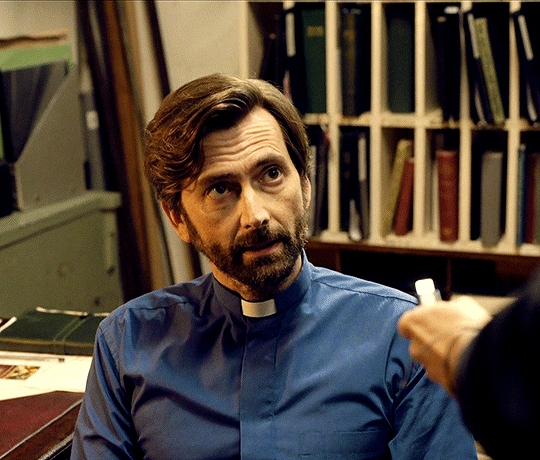


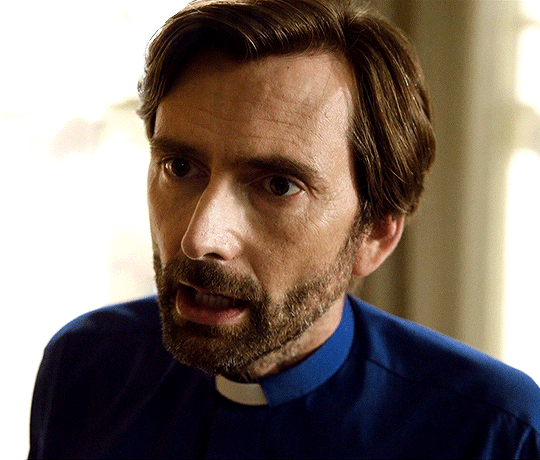


David Tennant as Rev. Harry Watling
INSIDE MAN (2022) - Episode 1 (1.01)
#inside man#tvedit#david tennant#dtedit#usergiu#arthurpendragonns#userteri#gifs#mine#the fact that his father was a minister of church of scotland is kinda funny to me
438 notes
·
View notes
Text
it's been a good few days since we made our (re)acquaintance with our good professor dr. van helsing, which means im going to do what i promised to do literal months ago and present my historical faceclaim: dutch reformed church minister (dominee) cornelis eliza van koetsveld (1807-1893):
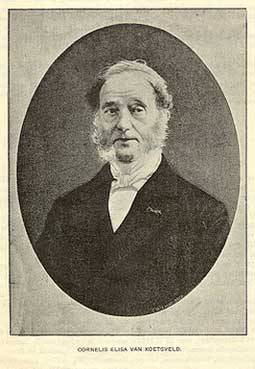
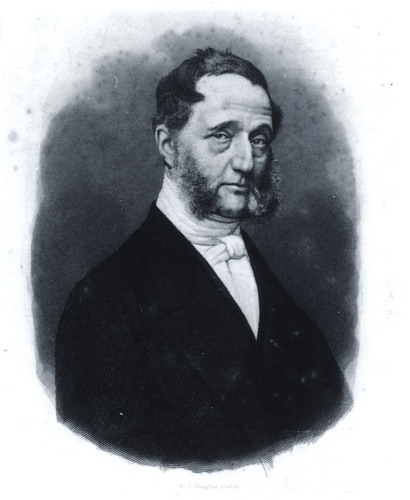
one of the most well-known ministers of his era, he started out as a simple village preacher and ended up as court minister - he even baptised queen wilhelmina of the netherlands (1880-1962). he was also, like many dutch reformed ministers in the 19th century, a fairly popular author. it was relatively common for dutch ministers to write fictionalised accounts of their experiences, especially in the countryside, about the people and their habits, the day-to-day occurences, their own efforts to teach and guide their flock correctly and the difficulties they encountered. such accounts usually included some kind of social commentary (van koetsveld's later work was inspired by dickens) and moral lessons for the readers as well. van koetsveld's most popular book can be found here, though it is of course in dutch.
so why van koetsveld? going off his looks alone, when i saw his picture for the first time, i was struck by how in almost every single one of his portraits, he looks kind and caring and yet - there is something mischievous about him, like he's in on some joke or a little piece of knowledge that you, the onlooker, have not yet been made aware of. he looks like a knowledgeable elderly man who also knows how to have little fun - which, to me? is van helsing to a t. and it's not just in his face: his written work exudes the authoritativeness of the 19th century preacher but is full of witty comments and sharp wisecracks that still make me chuckle when i read them.
there is also something else that endears him to me, and that makes me think he's a good fit for van helsing: van koetsveld founded the first dutch school for special education of what we now know to be neurodivergent children, the 'hague idiot school' (1855-1920). the name of his institute doesn't translate particularly well to modern times, but it is important to view this in context: the children who attended this school were generally thought to be feeble-minded and therefore incapable of development, but van koetsveld disagreed with that sentiment. now i don't think van koetsveld would've believed vampires to be anything else but a baseless countryside myth, but his views on neurodivergent children show a certain open-mindedness, to think differently from other people, that is a core trait of van helsing too. (somewhat in that vein, for anyone interested, when the time comes, ill make a post on his conduct towards renfield)
tl;dr, when looking at his pictures i can easily imagine him doing any of the things we see van helsing do in the books: teasing seward, maintaining his gentle but firm bedside manner around his patients, getting up to the various nighttime shenanigans from the next few weeks, and van koetsveld's real-life temperament, as far as can be established, seems to collide quite well with the character of van helsing.
#it doesn't look like cornelis was a ginger but well you can't have everything#i've linked his wiki page but unfortunately it's only available in dutch and german so give deepl a spin i guess#most of the information on that page i just ripped off and (re)wrote here tho#anyway! i wish i could've met this man irl i think i would have liked him#do i agree with everything he says. no ofc not he was a 19th c. minister. but he is definitely one of my obscure historical special guys#dracula#dracula daily#also trying to find the right english equivalent for terms in the dutch reformed church is terrible#half the time the english term is used in the anglican church but the same word directly translated to dutch is a catholic term#so i tried to avoid them here as much of them as possible
27 notes
·
View notes
Text

I'm happy to finally announce publicly that I'm now a Minister of Satan
Photo: Stephie Scarlet
Horns: StoryTeller Cosplay
Rosary: Unholy Rosaries
Pitchfork Pin: Psychic Circle Oddities
#satanist#satanic#666#demon#suit#nonbinary#goth#gothic#goth model#blonde goth#alternative#alternative model#alt model#azura rose#church#portrait#minister#minister of satan#horns
32 notes
·
View notes
Text
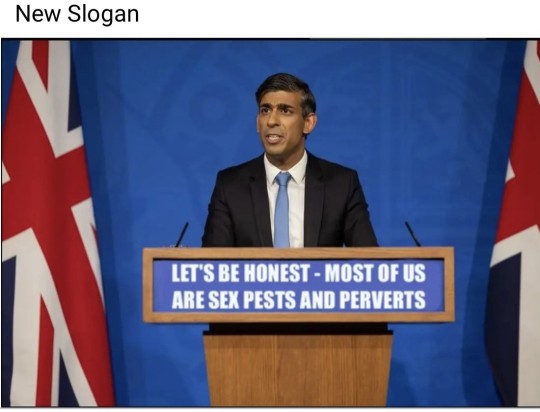
fascist nazi rightwinger rishi sunak & co.
#slogan#rishi sunak#rishi delays ban on sale of petrol and diesel by five years in net zero pledge#rishi set to axe hs2 link after ‘out of control’ cost increases by nearly £8#trans church minister says sunak’s remarks put the community in ‘greater danger’#sunak says fact he’s never smoked is ‘irrelevant’ to proposed crackdown#sunak#fuck the tories#tories set out policies as conservative party conference kicks off in manchester#‘we all know the tories are s**t’#anti tories#tories out#corruption#corrupt politicians#police state#political#politics#uk politics#uk police#ukpol#uk government#uk govt#ukgov#uk#united kingdom#bigots#liberal hypocrisy#republican hypocrisy#gop hypocrisy#hypocrite
10 notes
·
View notes
Text
Navigating the Threshold: The Fear of Disclosing a Journey to Catholicism to Protestant Friends
I want to share my innermost thoughts with you and ask myself why on earth I fear sharing them with family and friends?
I want to share my innermost thoughts with you and also ask myself ‘why on earth I fear sharing my desire to be Catholic with family and friends?’
I am a Protestant minister of 40 years looking to convert to Catholicism and I am beginning shared this. However I still feel fear when sharing it with friends, colleagues and family, which is causing me anxiety . In this article are a few reasons why…

View On WordPress
#catholic conversion#catholic conversion story#catholic reflections#Catholicism:#decision to convert#Fear of Misunderstanding:#Fear of Rejection:#protestant church to#protestant to catholic conversion#Theological Differences:#women minister becomes catholic
10 notes
·
View notes
Text
deseret book is more persistent than duolingo.
i ordered 2 books for a church research project on Black saints in the early Church and also in the Reorganization, on which the one book had a small section us and all had info from the our shared early church history, and it was an ebook too!
and i get physical mail from them once a month. i have no idea how to cancel.
herald house, the community of christ publishing house, contacts me much less, and i buy books from them all the time.
and oh their church book app reminds me to read my scriptures and the words of their prophets regularly if it's not in sleep mode.
i have to admire the effort behind it, ngl.
#tumblrstake#the Church of Jesus Christ of Latter-day Saints#Community of Christ#latter day saint#deseret book#i highly recommend both books#black saints in a white church#and “My Lord He Calls Me” edited by Alice Faulkner Burch#she's really awesome so pls support her#i hang out with the genesis group bc i am playing with a similar group for community of christ#because the Black saints expressed interest#actually Black Saints in a White Church may have been elsewhere by Signature Books#you can read it for free on archive.org#and if you're at BYU you can access it too and papers on it#i'll promo them in another post eventually#white saints in my church don't get my vision bc their like “we never had a priesthood ban”#but i literally had to do the project bc they were speaking over us regarding anti-Black racism in our D&C#and people individually reached out. like Black church leaders. bc they be doing this.#we made so much noise and the first presidency reached out to ME bc i wrote a paper that spread through the church about it#wild moment. but yeah we need something like the Genesis Group and they were willing to help me out a bit#its too much for me to handle on my own tho. esp with the revitalizing our intepretation and use of the Book of Mormon projects#i always put too much in the tags. i should write a post about that and share my article#it was on our D&C 116 which is like our L-dS OD 2 on Race in the priesthood and specifically ordination of Black men#which they (some of the white saints) wanted removed 🙄 bc of the “ministers to their own race” part which led to segregation being allowed#but also explicitly affirms God calls people of all races to priesthood and also that Black congregations didn’t need white pastor oversight#so just leave it. and ig you feel guilty...cope#i personally believe it to be inspired but flawed#it was literally a mostly white church in 1865. not excusing tho bc some sects were always fully integrated like the Bickertonites#they had a Black apostle in 1915. representation at high levels of leadership#oh and women in the priesthood from the jump. if limited
4 notes
·
View notes
Text
On October 8th 1774 the Rev. Henry Duncan, founder of the first ever savings bank, was born at the Duncan Manse in Lochrutton, near Dumfries.
As a young man his education started at Dumfries academy he would go on to study at St. Andrews, Edinburgh, and Glasgow. About this time the Duncan Manse was visited by Rabbie Burns himself. Henry's father told his sons "Look well boys, at Mr. Burns for you'll never see so great a genius." At age sixteen in a move that foreshadows his later life he followed his two brothers to Liverpool to work at Heywoods bank. However finding Liverpool full of Englishman he only stayed three years.
At age nineteen he returned to his studies and prepared to become a minister. He was following in the footsteps of his father and grandfather. Through both sides of his family he was connected to 150 clerics. At age 24 he received his license as a preacher. In 1799 he was offered three pulpits Ireland, Lochmaben and Ruthwell. Ruthwell was the poorest post of the three but the lure of his home area took him there. As a minister in Ruthwell his main concern was the poor and trying to help them.
Henry Duncan founded two newspapers and wrote essays under the title "The Cottage Fireside" However what he is most known for is the founding of Scotland's first savings bank in 1810. Henry worked hard against unfair treatment of people wherever he saw it.
This included working for fair treatment of Catholics as well as being a abolitionist. Because of his great concern for the poor he started his bank. He wanted financial independence for everyday people. He felt government handouts were degrading and crushed the spirit. His bank proved a success. After a year he had deposits worth 151 pounds a high amount considering the poverty of Ruthwell. The cottage where the bank started is now a museum and can be visited year round.
Within five yrs banks based on his concept were found all over thecountry. During this time he went to London to have formal legislation passed, in order to protect depositors. He paid for the expense out of his own pocket, including hiring a replacement minister for Ruthwell while he was gone.
Other than his bank Henry is most known for restoring the Ruthwell cross. The cross is 18 feet tall and dates from around the mid 7th century. However the dour church leaders after the reformation didn't approve of it and it was broken up in 1642. Henry discovered parts of it buried and other parts laying around the church and realizing what it was, had it restored over a twenty year period despite the fact the order of its destruction hadn't been rescinded. It can be seen at the Ruthwell Church. The inscriptions on it are from a devotional poem "The Dream of the Rood", the oldest poem in English written by Northumbrian poets circa 7th century.
In 1843 feeling the government was sticking there noses in Church business, he helped start the free church in the period known as The Disruption. This meant leaving Ruthwell which was in the established kirk. He built a new free Church at Mount Kedar. He later moved to Edinburgh for a time to help the new kirk.
The Reverend Henry Duncan was given a honorary degree of Divinity from St. Andrews. When Rudyard Kipling gave an address at Duncan's alma mater he began by saying "At first sight, it may seem superfluous to speak of thrift and independence to men of your race and in a university that produced Duncan of Ruthwell"
In early February 1846 while giving a sermon he collapsed from a stroke. He died on February 1th2 1846.
I must say that the photograph of Henry Duncan must be one of the earliest born men to be the subject of a photograph, taken by the pioneering duo David Octavius Hill and Robert Adamson it probably dates from around 1843 as both men were also part of The Disruption.
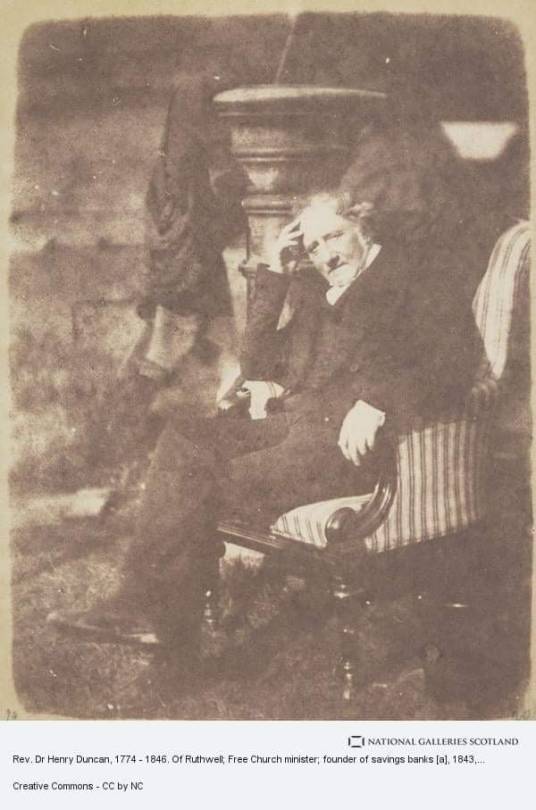


12 notes
·
View notes
Text
WE (ALMOST CERTAINLY) DID IT!
THE OPPOSITION (ANTI-RIGHT) WILL FORM THE GOVERNMENT
I'm so happy right now I'm crying
This means that the leftwing party will be in the government
The far-right party had the worst result
The turnout was the highest ever!!!!
We did it!!!!!!
#polska#poland#election#politics#political#WE WILL GET NORMAL MINISTER OF EDUCATION AND THE CHURCH WILL BE OUT AND WE WON'T BE SUCH AN EMBARRASSMENT IN EU AND FREEDOM OF THE PRESS!!!!
7 notes
·
View notes
Text
@butaneandthebeast replied to this post:
i know nothing about anglican marriage services and any elaboration on your part esp. re: anne and freddie would be much, *much* appreciated <3
@crabapple10, adding incentive:
Yes, please elaborate on the implications of the Anglican marriage service!

Mine hour is come. A prolegomenon on the Book of Common Prayer: as a single text, it probably has the most decisive influence on the Anglophone literary imagination from the 16th century onward. Through the time of Austen’s writing, it’s part of most people’s daily lives (more than the King James Bible or Shakespeare, for instance.) I could digress on the theological and social debates that underlie its formation and revision, because I find them fascinating, but I will spare you. Point is: it’s influential, and it continues in use for centuries before substantial revision, so the language and some of the ideas would have been archaic by Jane Austen’s day, but... this is still the Marriage Service. The edition that would have been used for the Wentworths is that of 1662.
If you’ve seen the 1995 Pride and Prejudice -- a safe bet, probably? -- you’ve heard the opening of this liturgy, and I think its use is possibly the smartest choice of that very smart adaptation, simultaneously highlighting and undercutting the meaning of the text in a way that I hope Austen would have approved, showing the messy ways in which humans live our lives... and how we still aspire to human love that mirrors the divine, that makes us both better and happier.
Anyway! Despite the fact that the BCP contains Forms of Prayer to be Used at Sea, I rather think that Anne has a more easy familiarity with the liturgies of the church than her husband; that she is readier to view this as a homely as well as a solemn thing. But Frederick Wentworth is going to vow to love, comfort, honor, and keep this woman, in sickness and in health, keeping only unto her, and I think he’s going to do such a good job. He will vow to cherish her until parted from her by death. And the final vow of their joint sequence, before the priestly prayer confirming them as man and wife, is: “with this ring I thee wed, with my body I thee worship, and with all my worldly goods I thee endow.” I don’t know whether he would still be pale and grave, at this point, or just impossibly fond and pleased, but that... that is a vow. Made not only in the sight of God but also, I suspect, of the Harvilles holding hands, Sophy Croft borrowing her husband’s handkerchief, and Lady Russell looking fixedly at a stained glass window.
Anne, meanwhile, will be given from the hand of a man who has no affection for her into the hands of a man who adores her. And I think that quiet Anne Elliot makes her vows unhesitating. She will have this man and hold him, plighting her troth thereunto. “Neither time, nor health, nor life, to be called your own,” exclaims Anne, in conversation with Harville about the lot of naval men. She is acutely, painfully aware of this. But even if Frederick cannot call these things his own, she can, once they are married, call them hers. These things are owed to her, vowed to her, placed into her keeping after God’s. And if her Frederick were in serious danger, frankly, I think Anne would be prepared to argue the order of precedence with the Almighty.
#persuasion reread#now with big feelings about liturgy#anne elliot#frederick 'unconsciously nay unintentionally constant' wentworth everyone#one of my semi-clichéd identities:#queer anglo-catholic church lady#i ALSO have a lot of feelings about the fact that the minister would probably read the passage#about the man loving/cherishing his wife as himself#we know that#frederick wentworth#holds his life lightly and holds anne's comfort supremely dear#listen to the preacher fred
91 notes
·
View notes
Text
A Church So Strong
There is a church that has no name
They have no roof
They have no shame
Reaching up to the sky
To the God on high
They don’t ask why
They will live forever
They will never die
Living waters flow within
Forgiving sin that may never begin
A faith so strong against all wrong
The whole world afraid to look on
Yet they never waver with a love so strong
Helping one another
They do not fight but get along
Pray for you and sing their song
Oh how mighty
Oh how strong
If you were to bless them
You would never be wrong
By: Minister Peacefulpoet (word witch) 9/24/23
Anyone who knows me knows that I'm not much of a Christian and many churches would not even call me a Christian. (I'm not even sure if I can call myself a Christian) Yet this church has contacted me. I will honestly admit that I thought this was a scam. I talk to them almost everyday and this is legit. The strongest Christians I have ever known, poor and constantly under threat. Yet, they pray for me. I have only been able to find one organization who claims to help the Pakistani Christians directly and I've contacted them over a week ago and have not heard back. The largest church in the world and this is their most faithful followers. You tell me.
They are breaking my heart.



#poem#word witch#poetry#poet#minister peacefulpoet#ministerpeacefulpoet#pakistan#church#A Church So Strong
7 notes
·
View notes
Text
Ugh I had a pretty intense day. I wanna spend some time with Sim.eon, that'd make me feel better.
#honestly I really want to take a bath but I don't have a bath 😔#its so hard being a girl....#I'm pretty proud of myself though like you wouldn't believe what I did#I arranged a venue for my leaving party/wedding celebration#complete with the catering I want which is a classic British afternoon tea#because apparently my husband thought that only existed in Assassin's cr**d??#so I want him to have that experience for real like he wanted#and then I had to call all my guests to double check they can attend that day + arrange travel cus its in my families hometown and not mine#then I ordered the custom celebration cake I want...#and THEN I booked two different hotel stays like one is just an overnight one in the hometown#and the other is a spa hotel for us to spend some solo time in#Im really very excited for that!#but after so much phone calls and tedium and money out of my bank Im just 😴#getting all of this sorted has been weighing on my mind a lot lately though so Im glad its done#oh also my older brothers dryer literally exploded so now I have to buy him a new one...#and I still need to arrange with my family's church minister to bless us but he isn't available on weekends#needless to say I definitely deserve some rest and relaxation after all of that!!#sunny speaks#qpr: coffee shop companions
6 notes
·
View notes